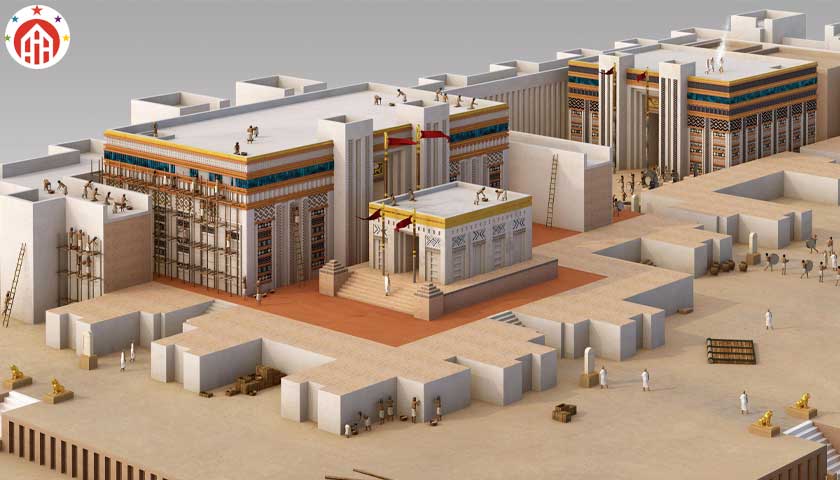Checking In: The World of Hotels – From History to Hospitality
Hotels play a central role in the world of travel and hospitality, serving as temporary homes away from home for millions of people around the globe. These establishments offer a diverse range of experiences, from luxurious retreats to budget-friendly stays, and provide a wide array of services to cater to travelers’ needs. In this comprehensive article, we will embark on a journey through the world of hotels, exploring their history, various types, the services they offer, and the factors to consider when choosing the perfect hotel for your travels.
A Glimpse into the History of Hotels
Hotels have a rich history dating back thousands of years. In the earliest days of human civilization, travelers and traders required places to rest during their journeys. These early accommodations, which we could consider as precursors to modern hotels, were often simple inns, taverns, and other resting places where weary travelers could find shelter, food, and a place to sleep.
As societies evolved, so did the concept of hospitality. In ancient Rome, the term “hospitium” referred to places of lodging and hospitality, reflecting the Romans’ appreciation for providing a warm welcome to travelers. During the Middle Ages, monasteries became safe havens for those on the road, offering shelter, sustenance, and rest. Later, coaching inns began to spring up to accommodate travelers journeying by horse-drawn coaches.
The industrial revolution of the 18th and 19th centuries marked a significant turning point for hotels. This era witnessed the emergence of grand hotels in major cities, offering luxurious accommodations, fine dining, and a wide range of services. Famous hotels such as The Ritz in Paris and The Waldorf Astoria in New York City became iconic symbols of this era’s hospitality excellence.
The 20th century saw hotels continue to evolve, with the birth of international hotel chains and a diversification of hotel types to meet the diverse needs of travelers. Today, hotels play an indispensable role in the global tourism and hospitality industry.
Exploring the Types of Hotels
Hotels come in various forms, each offering a unique experience and a different set of services. Here are some common types of hotels:
1. Luxury Hotels: The pinnacle of opulence, luxury hotels provide top-notch service, elegant accommodations, and an array of amenities. Fine dining, spas, and personalized concierge services are the hallmarks of these establishments. Well-known luxury hotels include The Ritz-Carlton and The Four Seasons.
2. Boutique Hotels: Typically smaller and independently owned, boutique hotels are celebrated for their unique and stylish design. They offer a personalized and intimate experience, often with a distinctive theme or ambiance that sets them apart.
3. Resorts: Resorts are often situated in breathtaking settings, such as beachfront locations or serene landscapes. They offer a wide range of amenities, including pools, restaurants, recreational activities, and entertainment, making them ideal for relaxation and recreation.
4. Business Hotels: Business hotels are strategically located in urban or business districts and cater to the needs of corporate travelers. They offer services such as conference rooms, high-speed internet, and well-equipped business centers.
5. Budget Hotels: Also known as economy or discount hotels, budget hotels provide affordable accommodations without extravagant amenities. They are ideal for travelers seeking a comfortable and cost-effective place to stay.
6. Hostels: Hostels are popular among budget-conscious travelers and backpackers. They offer dormitory-style accommodations that encourage social interaction among guests. Hostels are known for their affordability and communal atmosphere.
7. Extended-Stay Hotels: Tailored for guests who require long-term accommodations, extended-stay hotels provide facilities like kitchenettes and larger living spaces. They are often chosen by business travelers on extended assignments or individuals in the process of relocating.
8. Bed and Breakfast (B&B): B&Bs are smaller, often family-owned accommodations that offer a personalized experience. They usually include breakfast in the room rate and create a cozy and intimate atmosphere.
9. Motel: Motels, short for “motor hotels,” are typically located along highways and offer straightforward accommodations with parking right outside the rooms, making them convenient for road travelers.
The Services and Amenities Hotels Provide
Hotels offer an extensive array of services and amenities designed to enhance guests’ comfort and convenience. The range of services can vary significantly depending on the type and quality of the hotel. Common services and amenities provided by hotels include:
1. Room Types: Hotels offer a variety of room types, from standard rooms to suites, each with different features and price points to suit various guest preferences.
2. Housekeeping: Most hotels provide daily room cleaning and linen services to ensure a fresh and tidy environment for guests.
3. Room Service: Many hotels offer in-room dining services, allowing guests to order food and beverages to their rooms, often available around the clock.
4. Concierge Services: The hotel’s concierge is the go-to person for guests’ various requests, including restaurant reservations, transportation arrangements, and local recommendations.
5. Fitness Centers: Many hotels have on-site fitness facilities equipped with exercise equipment, and some even offer fitness classes and wellness programs.
6. Restaurants and Bars: Hotels often house restaurants, cafes, and bars that serve a range of cuisine and beverages, making dining options readily available to guests.
7. Swimming Pools: Resorts and larger hotels frequently offer swimming pools for relaxation and recreation, a great amenity for families and sun-seekers.
8. Spas and Wellness Centers: Luxury hotels and resorts often feature full-service spas, offering massages, beauty treatments, and wellness programs to pamper and rejuvenate guests.
9. Business Centers: Business hotels provide facilities for meetings, conferences, and work-related needs, ensuring that corporate guests can conduct their business seamlessly.
10. Wi-Fi and Connectivity: In the digital age, most hotels offer Wi-Fi and internet access to keep guests connected, allowing them to stay in touch with the world or catch up on work.
Choosing the Perfect Hotel for Your Stay
Selecting the right hotel for your trip is a crucial decision that can greatly influence your overall experience. Here are some key factors to consider when making your choice:
1. Budget: Determine your budget as a starting point, as it will significantly narrow down your options. Luxury hotels offer premium services but come with a higher cost, while budget hotels offer affordability.
2. Location: Choose a hotel that is conveniently located for your needs, whether you are on vacation, a business trip, or attending an event. A centrally located hotel can save you time and money on transportation.
3. Amenities: Determine which amenities matter most to you. If you value a fitness center, pool, or on-site dining, make sure the hotel offers these features. Prioritizing amenities aligned with your preferences can greatly enhance your stay.
4. Reviews and Ratings: Research the hotel’s reputation by reading reviews on websites like TripAdvisor or Yelp. These reviews often provide insights into the experiences of previous guests, helping you make an informed decision.
5. Booking Platforms: Use online booking platforms, hotel websites, or travel agencies to compare prices, availability, and special offers. It’s often a good idea to check multiple sources for the best deals.
6. Cancellation Policies: Understand the hotel’s cancellation policy in case your travel plans change. Flexibility is crucial, especially if you anticipate potential alterations to your itinerary.
7. Special Requirements: If you have specific needs, such as accessibility features, pet-friendly accommodations, or any dietary restrictions, confirm that the hotel can accommodate them. Ensuring that your requirements are met is essential for a comfortable stay.
In conclusion, hotels are much more than just places to sleep; they are integral to the world of travel and hospitality. They offer a wide range of accommodations and services, catering to diverse needs and preferences. Whether you are seeking a luxurious retreat, a budget-friendly stay, or a unique and personalized experience, the world of hotels offers an array of options to choose from. The next time you embark on a journey, consider the type of hotel that aligns with your travel goals and make your stay an unforgettable and enjoyable experience.




This comprehensive dive into the world of hotels was both informative and enjoyable. The historical perspective added depth to my understanding of how hotels have become such integral parts of the travel landscape. From understanding the evolution of luxurious accommodations to the rise of budget-friendly stays, the article covers it all. I appreciate the emphasis on the factors to consider when selecting a hotel. It’s evident that the right choice can enhance the entire travel experience, and this article equips readers with the knowledge to make informed decisions.
The article on hotels is a fantastic read for anyone interested in the intricacies of the hospitality industry. It’s remarkable how hotels have evolved over time to meet the diverse needs of travelers. Learning about the various types of hotels, from boutique to resort, and the services they offer was eye-opening. The article also provides practical tips on choosing a hotel, which I found particularly helpful. It’s clear that hotels are more than just places to sleep; they contribute significantly to the overall travel experience, making each trip unique and memorable.
As someone who loves to travel, I found this article to be a captivating exploration of the world of hotels. It’s intriguing to learn about the different types of hotels and the services they provide. The article delves into the historical aspects, giving me a newfound appreciation for how hotels have shaped the way we experience travel. It’s true; hotels are not just places to stay but integral parts of the travel experience. This article serves as a great guide for anyone looking to make informed choices when it comes to selecting the perfect accommodation for their journeys.
I’ve always been fascinated by the evolution of hotels and how they’ve transformed from simple lodgings to multifaceted hubs of hospitality. Reading this article provided a great overview of the history and diverse offerings of hotels worldwide. It made me appreciate the thought and effort that goes into creating unique experiences for travelers, from the opulent luxury hotels to the cozy budget-friendly options. Choosing the right hotel is indeed a crucial aspect of any trip, and this article offered valuable insights into the factors to consider for a memorable stay.